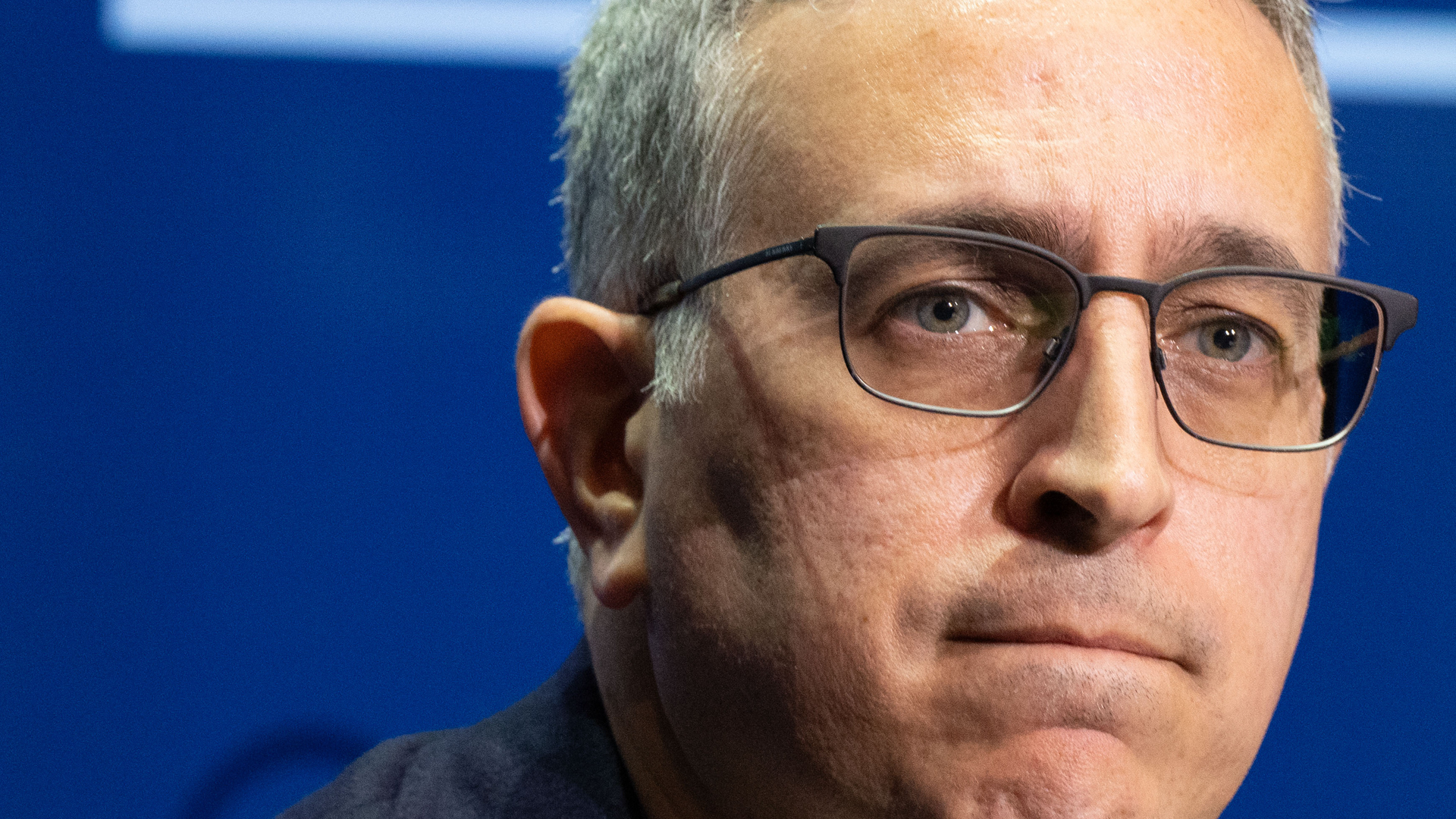
Despite the fact that most polls show the Liberals and Conservatives very close to each other in public support, the conventional wisdom in political and media circles is that the Liberals will not win the next elec- tion. To see the Liberals twisting themselves in knots to avoid an election indicates ”” to the frustration of some and the ela- tion of others ”” that even the Liberals themselves have begun to internalize this conventional wisdom.
Whatever one’s view of the Liberal reluctance to trigger a campaign, the larger question looms: Can the Liberals win?
Since the arguments supporting a negative reply are given endless voice in media circles and the Ottawa salons, let’s spare a moment to examine Liberal strengths and pos- sible ways forward to a Liberal electoral victory.
The Liberals must not forget that for all the things out- side of any party’s control in an election, there are several key tools within their control. First, the Liberals can continue to concertedly position themselves to exploit a Conservative Party stationed too far right on the political spectrum for many Canadians. Secondly, the Liberals can conscientiously resist placing Stéphane Dion in the prototypical opposition leader mould that exaggerates his weaknesses in order to better highlight his strengths as a new and different type of leader. And finally, the Liberals must start the process of deter- mining, priming and fighting for the key wedge issues that they wish to use to galvanize voter decisions at the ballot box.
Perhaps the biggest advantage the Liberals have is the positioning of the Conservative Party. Since Preston Manning blew up the Progressive Conservative Party in the early 1990s, its successors in English Canada ”” the Reform, Alliance and Conservative parties ”” have been viewed as too conservative for many voters who in the past had sup- ported the PCs. These new formations of the right have had a particular problem appealing to female voters.
The reputation for being too extreme for moderate liberal Canadian tastes is born largely of reality. The new incarnations of the right do not share the centrist views of the old PC Party on social policy, civil liberties or for- eign policy. They are obviously dismissive of income redistribution and social equity, distrustful if not opposed to the Charter of Rights, and have implemented a foreign policy more bellicose and aligned with US interests. Those who destroyed the PC Party to create this new entity reject the Canadian consensus and believe in fundamentally changing the country. In so doing, they have marginalized the party in large seg- ments of the country.
The Chrétien and Martin Liberal governments seized this opportunity and exacerbated the Conservatives’ problems. They moved the Liberal Party into the very centre of Canadian politics by focusing on a policy agenda of market-driven eco- nomic policy, fiscal responsibility, activist social policy and liberal poli- cies on ”œrights” issues.
The Liberal Party also relentlessly, in election periods and between, characterized these formations as extreme and outside the mainstream Canadian value system. When the Alliance and the PC Party merged, the Liberals made sure Canadians under- stood that the new Conservative Party was not a recreation of the PC Party but rather a hostile takeover by the Reform Party. Liberals reached out to those who felt dislocated by the new formation, and people like Scott Brison, Keith Martin and John Herron helped make the point that the Harper Conservatives did not reflect their more traditional brand of conservatism.
The importance of this positioning cannot be overstated. The Conservatives’ problems in Ontario, Atlantic Canada and Vancouver can be directly traced to it. In four straight elections from 1993 to 2004, the Liberal Party won more seats outside of Quebec than the Reform, Alliance or Conservative party did. Perhaps for- gotten is that for 25 years, the Progressive Conservatives had domi- nated the rest of Canada. When the Liberals won elections in that period ”” 1972, 1974 or 1980 ”” they did it with huge sweeps of Quebec. In every one of those Liberal victories, the Progressive Conservatives won more seats outside of Quebec than the Liberal Party did. In those days, even Toronto was reasonably fertile ground for the PCs. PC candidates formerly held Toronto seats in which the Conservative Party is now a marginal player, like Rosedale, St. Paul’s and Don Valley West. When Brian Mulroney added Quebec to that mix for the PCs, it resulted in two succes- sive routs of the Liberal Party.
Liberal sweeps of Quebec are a dis- tant memory now, and certainly cannot be recreated in the short or medium term. While the party needs to improve in Quebec, certainly to higher levels than in 1993, 2004 or 2006, it needs a strategy to form government that is based on 20 to 30 Quebec seats.
The Harper Conservatives under- stand this, to the extent that their ide- ology allows them to, and have been downplaying their philosophical bent while in this minority government. Everybody who has read the past writ- ings of Stephen Harper and Tom Flanagan understands the downplay- ing of Conservative ideological moti- vations to be strategic in their efforts to secure a majority.
That means the Liberal Party must keep its eye on the ball, marginal- izing the Conservatives. It needs to avoid a reflexive drift to the left that in opposition can seem tempting, so as not to provide room at the centre for the Conservatives to occupy. The Liberal Party needs to emphasize issues that reinforce existing negative impres- sions of the Conservative brand.
The Liberal Party with its current problems in Quebec could likely not beat the old Progressive Conservative Party, but it can beat the Harper Conservative Party.
So much attention has been paid to the weaknesses of Stéphane Dion as a leader that his strengths have been forgotten. This is as much his fault as any- body’s. He needs to believe in the value of his strengths and not be afraid to acknowledge his weakness- es. He has few conventional opposition leader skills. He is not com- pelling on the attack. He is not deeply versed in the arts of politics and cam- paigns. He is not an effective orator in English.
None of that prevented him from winning the Liberal leadership. Had Liberals been looking for the best political strategist and tactician, they would almost certainly have elected Bob Rae. Had they been looking for a great orator, they likely would have chosen Michael Ignatieff or Ken Dryden.
Instead, Liberals wanted, and sensed that Canadians wanted, some- thing different. They sensed that poli- tics in Canada was ready for a new national challenge, something that transcended the machinations of Ottawa politics. After the sponsorship affair, Canadians needed to believe that the Liberal Party was about purpose, not jockeying for partisan advantage.
Yet Dion has put himself in a very conventional opposition leader box where he does not excel. He is there in Question Period, leading the attack on the government, including its accumu- lating list of dubious-looking contro- versies. Yes, these need to be exploited, but not by him. He has an extraordi- narily talented opposition caucus that is more than capable of taking apart the Harper cabinet in Question Period.
Stephen Harper and Jack Layton both look more like ruthless political operators than like people trying to build a better Canada. Dion does not need to compete on that ground. While his caucus members are leading the attack in the House, he should be out in the country talking about the issues that animate him and building coalitions on the ground for the policy prescriptions he will be offering in the next election.
In addition to his passion for the environment, Liberals saw in Dion a man of character and an anti-politician as an antidote to the current mode of our politics. He needs to fight back against the definition imposed on him by media, the Conservatives advertisements and the political circumstances of staving off an election. He needs to under- stand that what others consider weaknesses can be strengths. His constancy of character can serve as a strong counterpoint to Harper’s endlessly tactical calcu- lating postures.
He doesn’t need to prove he can be a good opposition leader; he needs to establish that he will be a good prime minister. He doesn’t need to attack; he needs to inspire. He needs to tap into the aspiration for something better that his environmental message touched in the leadership race.
Part of that is having a good team. Dion should emphasize the team he brings with him. The Harper govern- ment is called that for a reason ”” it is as much a one-man show as we have seen. Dion can offer Canadians a team of deep talent and broad diversity, and it will stand as a sharp contrast to the Conservatives. It was used effectively by the Liberals in 1993 and arguably the team is much stronger now.
Two issues will be central to a Liberal victory in the next election ”” the economy and the environment. They are critical, both as contrasts to the Conservatives and as a way to bring voters parking with the NDP and Green parties into the Liberal tent.
As the storm clouds gather, the econ- omy is becoming the likely most important issue in the next election. In the United States, it has rapidly eclipsed the Iraq War as the issue voters care about most. Now with the economy on the verge of recession, and likely in reces- sion in central Canada, that will happen here as well. Polling by the Gandalf Group shows that many Canadians, especially families, feel they are falling behind economically. Fears of job loss are growing. The Conservatives cannot be credibly blamed for a multitude of forces that cause an economic slow- down; however, they can be blamed for frittering away Canada’s strong fiscal position in two short years. The Conservatives have the federal govern- ment on the precipice of a deficit again, without the fiscal room to cushion Canadians against a recession or help Canadian business weather the storm. The Liberals left a legacy of a growing economy, a strong balance sheet and safeguards to allow for contingencies just like this. The previous Liberal gov- ernments eliminated the deficit, launched the longest series of surpluses since Confederation, retired a hundred billion dollars of debt and introduced the largest tax cuts in history.
There is a clear contrast between that record and the management now in place. The Liberal Party must now draw on this record to paint a clear distinction between themselves and parties of both the left and right. This is essential for the cen- trist position they need to maintain. The Liberals can demonstrate that, unlike the Conservatives, they understand what the proper role of government is on economic policy. The Harper Conservatives do not see government as a force for good, and they believe people should fend for themselves, even when that’s not possi- ble. Liberals believe that Canadians are stronger together and that the vulner- able need to be supported. Just as importantly, the econ- omy is a critical wedge issue with the NDP, Greens and Bloc. Canadians do not trust any of these parties with the economy and if the Liberals can look progressive on social policy and the environment while being competent, smart and compassionate on eco- nomic policy, they will start to attract voters back from the NDP and the Greens.
While doing so, they must also refocus on the true reason for Dion’s win at the leadership conven- tion ”” his passion about the envi- ronment. This has become an increasingly important issue for most Canadians, and is becoming a key test of whether politicians ”œget” the voters’ values. At the moment, the Conservative government has suc- cessfully bogged down the debate about climate change in an impene- trable discussion of targets, dates and programs. Dion needs to escape that bog and bring the issue back to a dis- cussion of values. This issue is likely the best chance he has to show Cana- dians that he sees things the way they do; that he shares the sense of guilt the baby boom generation feels about leaving the planet in so much worse shape than they found it in, and the anger and determination young Canadians feel about the same facts. Most Canadians won’t vote on the environment if it is reduced to a choice between one complicated plan and another. They will vote on the environment if they sense there is a leader who really understands how they feel about it and can therefore be trusted to do the right things.
This combination of strength on the economy and affinity on the environment is central to drawing voters back from the NDP and Green parties. How important is this for Liberal fortunes? In the last Liberal majority win in 2000, the combined NDP and Green vote was just under 10 percent. For the past year, the combined number in polling has been between 25 five and 30 percent. It is difficult to see the Liberals win- ning an election with that many votes to the left of them. With the NDP having its lunch eaten by the Green Party and drifting back toward its core, the most fertile ground for new Liberal voters can likely be found in the Green parking lot.
During the Liberal leadership cam- paign many candidates, includ- ing Dion, pledged not to use negative advertising in the next election. Per- haps admirably altruistic, such an approach is simply not viable. Elec- tions are about choices, and there is nothing morally wrong with illustrat- ing the downsides of choosing another party while extolling the benefits of voting for your party. Even more com- pelling is the efficacy of it. Canadians, like all citizens of the world, claim not to like negative or comparative adver- tising. However, it is what they use to help make their decisions. It is a truism that governments are defeated more than elected. For that reason, compara- tive advertising is the most powerful type of election advertising. The Liberals will have a much better chance in the next election if they let their advertising work for them by reminding Canadians of Conservative inaction on climate change, the complete indifference of the government to the plight of First Nations and Aboriginal Canadi- ans, budgets that have spent billions with inconsequential results, the impact of Conservative economic and social policy on Canadian families and the string of scandals now trailing the Conservatives around like bad luggage.
The Liberals have to find a way to improve their fortunes in Quebec. Whether the situation is as bad as indi- cated by a recent CROP poll, which showed the Liberals possibly winning under 10 seats, or as good as the Harris Decima polling result, which shows them in the same territory as 2006, nei- ther is good enough to form a govern- ment. Issues can play a key role in doing this. Federalists in Quebec were so enraged about the sponsorship scan- dal that they ignored the policy gulf between themselves and the Conservatives. The Conservatives have tapped into the nationalist sentiment in Quebec, but they remain out of sync with most Quebecers on environmen- tal concern, foreign policy goals and social issues such as same-sex marriage, abortion rights and gun control. With the sponsorship issue having receded somewhat in the public mind, these issues will likely be more vote-deter- mining than they were in 2006. However, Liberal fortunes in Quebec will largely rise or fall on the basis of Dion. Savagely caricatured by the media and political elites of Quebec, he has essentially been the victim of an ongoing negative ad campaign with no response. As a native son of Quebec City, somebody who has travelled the road from separatist to federalist yet remains a stout defender of Quebec’s jurisdiction, and with a strong record of achievement, he has a biography that needs to be told in Quebec. Right now, he is considered a liability for the Liberals in Quebec. He needs to be, and can be, a strength. The Liberal Party should respond by reintroducing him to the Quebec electorate. Whatever funding can be cobbled together should be spent on advertising in Quebec to re-brand Stéphane Dion.
The next election will be a difficult one for the Liberal Party. They are hav- ing votes poached by multi- ple opponents on the left. They face a well organized, well funded opponent in the Conservatives. The Conservative Party has morphed into a military- style command and control structure that can be count- ed on to be disciplined.
The Liberals need not, however, be sapped of their own elec- toral confidence by the conventional wisdom of a political establishment that tends to have a small, refracted lens. None of their opponents is with- out weakness, and the Liberal strengths are underrated. If they use the time they are now buying wisely, the Liberals have every chance of being competitive in the next election.
As former senator Davey Steuart once told me, ”œThe political graveyards of this country are full of those who underestimated the Liberal Party.”







